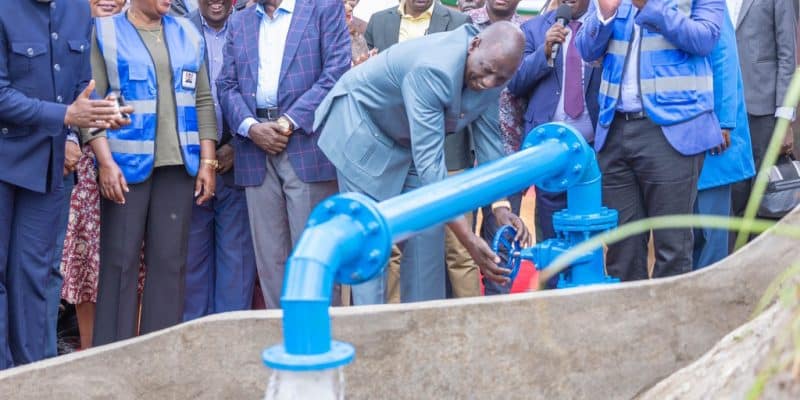On 7 August 2023, the President of the Republic of Kenya, William Ruto, inaugurated the new Kaigunji irrigation system in Nyeri county. The system supplies some 5,000 farmers with water, in response to a persistent drought.
During his recent five-day tour of the Mount Kenya region, Kenyan President William Ruto visited Nyeri County to inaugurate several water infrastructures, including the Kaigunji irrigation system. The inauguration took place on 7 August 2023 in the presence of Alice Wahome, Cabinet Secretary at the Kenyan Ministry of Water, Sanitation and Irrigation.
The aim of the project is to make 5,000 farmers in the Kaigunji area more resilient to water stress. This will be achieved by improving water storage facilities. “A total of nine concrete reservoirs with a combined capacity of 1,800 m3 have been built as part of the irrigation project. The stored water resource will be used during periods of high heat”, says the Kenyan Ministry of Water, Sanitation and Irrigation.
Read Also – KENYA: Eight irrigation dams will improve food security in Meru
The water resource will supply irrigation systems over an area of around 1,012 hectares dedicated to horticultural crops such as tomatoes, bananas and French beans. This should increase the value of horticultural production in Kaigunji by 350 million Kenyan shillings a year (more than $2.4 million), and create around 12,500 jobs in the agricultural sector.
“At least 31 schools will also be connected to the new irrigation systems, enabling around 12,000 learners to grow horticultural crops on an average of one hectare per school,” says the Kenyan Ministry of Water, Sanitation and Irrigation. As well as increasing the value of horticultural production, the irrigation project, which is nearing completion, will help to improve food security for households in Kaigunji and the surrounding areas, which are dependent on agriculture.
Inès Magoum







